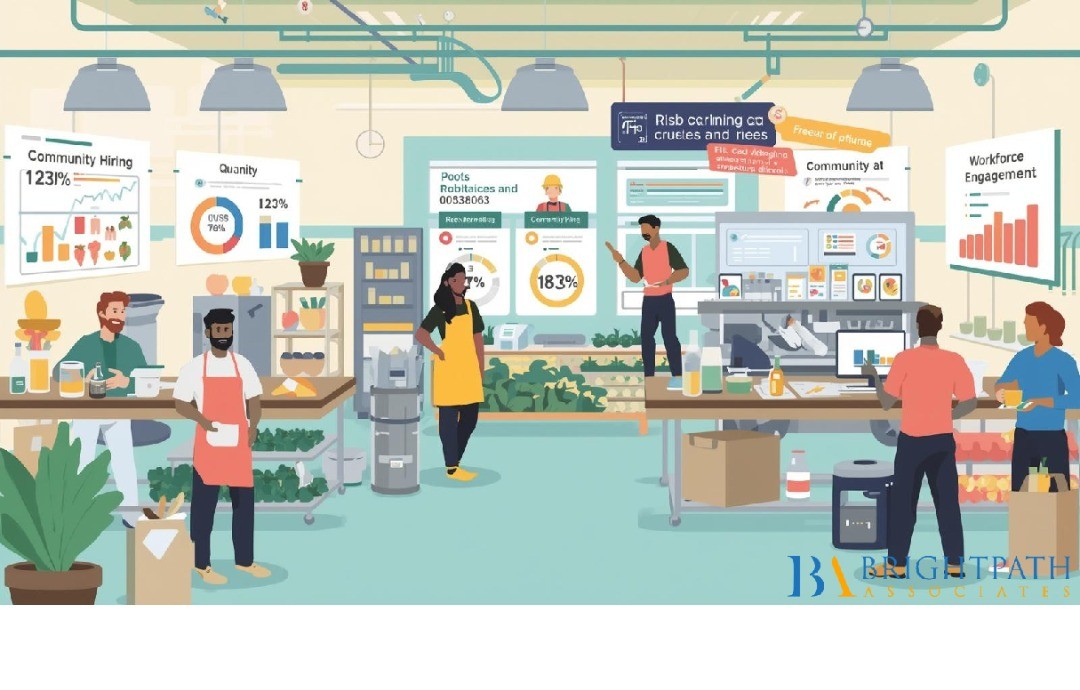Introduction to Local Food Processing Talent Acquisition
The landscape of the #FoodProcessingIndustry is undergoing significant shifts, particularly in how companies approach talent acquisition. With the increasing demand for quality local food products, acquiring and nurturing talent has become imperative. This requirement aligns with broader industry trends like food production growth strategy, which emphasizes the value of targeted executive hires. This shift reflects an industry-wide understanding that sustaining growth and fostering innovation require the right leadership at the helm. As consumer preferences lean toward transparency and local sourcing, food production companies are recognizing that skilled professionals who resonate with these values are crucial for long-term success.
The Current State of Talent Acquisition in Food Processing
Small to mid-sized food production companies often encounter challenges in attracting talent that can contribute to their growth strategy effectively. One of the foremost issues they face is a shortage of leadership talent, which can severely hamper food production business strategy and execution. Without experienced and motivated leaders, even the most innovative products can fail to reach their potential in a competitive market. Food production consultants play a critical role in filling these gaps by offering invaluable expertise in sourcing and retaining capable leaders who not only understand the industry’s unique challenges but also possess the vision to drive change.
Statistics highlight the burgeoning demand for executive search recruitment in the food industry, driven by the necessity for specialized skills and leadership. According to BrightPath Associates, a leading executive search firm that specializes in the food sector, the strategic acquisition of talent is essential for navigating the complexities of food production management, supply chains, and safety certification requirements. The importance of this cannot be overstated, as effective leadership is central not only to operational efficiency but also to fostering a culture that prioritizes safety, quality, and sustainability.
Strategic Importance of Community Connections in Talent Acquisition
Engaging with local communities offers significant advantages in talent acquisition for food production companies. By tapping into local networks, companies can achieve better alignment with both regional needs and consumer preferences, fortifying their management strategies. Case studies of local food processing entities illustrate how integrating community engagement into hiring practices enhances brand reputation and operational efficiency, often resulting in a more loyal customer base and a dedicated workforce.
Moreover, local connections can provide insights into consumer trends and preferences that larger, less community-oriented organizations might overlook. This insider knowledge can help companies tailor their products and services to meet existing demands effectively. Furthermore, the emphasis on food production safety certification and investments in state-of-the-art processing equipment can be attractive incentives for #PotentialHires, underscoring a company’s commitment to quality and safety. These elements not only draw in top-notch talent but also contribute to establishing a sustainable industry presence that resonates with ethically-minded consumers and potential employees alike.
Innovations and Technology in Talent Acquisition
Technology’s role in revolutionizing food production and recruitment processes cannot be overstated. From enhancing production capabilities to streamlining executive recruitment, technological advancements are pivotal to almost every facet of the food processing sector today. For instance, artificial intelligence and machine learning algorithms are being increasingly used to analyze candidate qualifications, matching them more accurately with job requirements. Examples of innovative practices in executive search recruitment include leveraging data analytics to refine candidate searches and using virtual reality for immersive candidate onboarding, providing a unique glimpse of the workplace culture and environment before a hire is finalized.
Emerging industrial trends showcase the integration of technology in talent acquisition strategies, emphasizing a more data-driven, efficient approach to filling leadership positions. Such innovations highlight the necessity for food production companies to continually adapt to maintain their competitive edge. Embracing online platforms for job postings and networking amplifies outreach efforts, ensuring that companies attract a diverse pool of candidates. Overall, technology enhances the ability to track metrics related to recruitment efficiency, employee retention, and overall organizational performance.
Building a Sustainable Talent Pipeline
Creating a sustainable talent pipeline requires strategic foresight and a commitment to nurturing future leaders in food production. It’s not just about filling positions; it’s about investing in people who will grow within the company and help drive its mission forward. Aligning recruitment practices with overarching business strategies ensures that talent acquisition efforts support long-term goals. Internal programs focusing on mentoring, training, and developing food production supply chain knowledge among employees can be vital in fostering leadership qualities among the existing workforce. This proactive approach not only prepares employees for higher responsibilities but also enhances job satisfaction and company loyalty.
#ExecutiveSearchRecruitment remains a cornerstone in establishing robust talent pipelines. Firms like BrightPath Associates help food production companies reduce hiring risks and develop a leadership cadre that upholds the company’s vision and drives growth. Their specialized recruitment strategies are tailored not just to the needs of the organization but also to the cultural context in which it operates, ensuring that the leaders they place are a good fit for the values and mission of the company.
Conclusion: The Future of Talent Acquisition in Food Processing
As the food processing industry evolves, so must its approach to talent acquisition. The strategies discussed here illustrate the need for a cohesive, forward-thinking recruitment methodology that anticipates and adapts to industry shifts. From 2023 to 2025, there has been an observable strategic evolution in recruitment practices, guided by the objective of addressing leadership gaps comprehensively. With the proper use of technology, community engagement, and a focus on developing in-house talent, food processing companies can position themselves for enduring success.
Ultimately, executive search recruitment emerges as a vital solution in achieving these objectives, ensuring that the food processing sector continues to thrive and innovate in an increasingly competitive landscape. By fostering connections with local communities and investing in the right technology, companies can cultivate the leadership talent necessary to meet rising consumer demands and navigate the complexities of the modern food supply chain efficiently.
Find your next leadership role in Food Production Industry today!
Stay informed with the latest insights on Food Production Industry!

